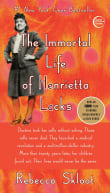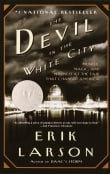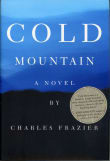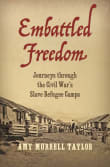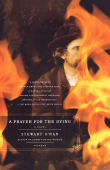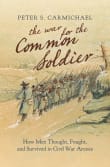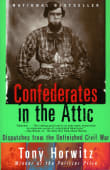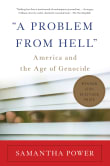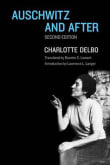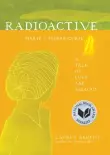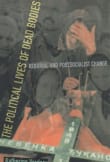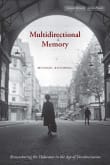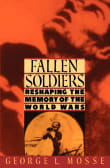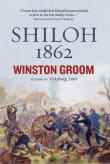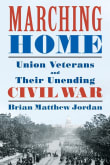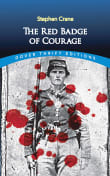This Republic of Suffering
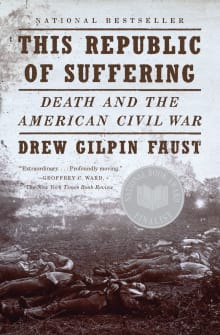
Book description
NATIONAL BESTSELLER • NATIONAL BOOK AWARD FINALIST • An "extraordinary ... profoundly moving" history (The New York Times Book Review) of the American Civil War that reveals the ways that death on such a scale changed not only individual lives but the life of the nation.
More than 600,000 soldiers…
Why read it?
7 authors picked This Republic of Suffering as one of their favorite books. Why do they recommend it?

Death is everywhere in war: on the battlefield, in a disease-ridden hospital, or in childbirth on the home front. Drew Gilpin Faust’s non-fiction book, This Republic of Suffering, brings eye-popping numeric data to the prevalence of death in war. But she never stops at the surface level of how many deaths, or how many unidentified soldiers or improper burials occur during the Civil War. I was caught up entirely as Faust’s words, riveting and respectful of all the pain and loss, showed how death became an ennobling transformation for many people, either in the cause of racial standing or…
From Evie's list on the intertwinings of war, conscience, and religion.

The Civil War snuffed out the lives of some 750,000 soldiers—more than two-and-a-half percent of the U.S. population. Drew Gilpin Faust’s powerful book tallies the physical, psychological, and emotional toll of living amid mass death. The author is especially interested in all that Civil War death demanded from the living—from a clever rhetorical alchemy to an expanded government bureaucracy; from new embalming technologies to the first national cemeteries. Though informed by deep research and the author’s encyclopedic knowledge of the Civil War era, the book nonetheless communicates timeless universals. Indeed, few books have done more to drive home war’s enormous…
From Brian Matthew's list on laying bare the human ordeal of the Civil War.

Few who have any interest in the American Civil War have any doubt that a dark cloud of death hung over the nation from 1861 to 1865. This cloud and the losses it represented were so profound that the country found a new way to mourn its losses. Embalming became an accepted and common way to transport the dead to their loved ones at home. Recognizing that 750,000 Union and Confederate soldiers died in the Civil War (killed and died of disease), Faust’s book is an essential element in understanding the war and its consequences. Faust maintains: “War cannot be…
From Robert's list on the heart of the American Civil War.
If you love This Republic of Suffering...

Historians, in writing about change over time, typically focus on the living and fail to notice that their subjects are constantly dying. Missing this simple fact, historians also do not notice that the dead compel change as much as, perhaps more than, do their survivors. What I so love about Faust’s compellingly written The Republic of Suffering, is that it is a dead-on reckoning of how the unfathomable carnage of the Civil War shaped those who survived that conflict, their memory, and the nation they went about piecing together in the wake of enormous and violent human death-toll.
From Peter's list on death and violence of late-19th-century America.

This Republic of Suffering came out just as I was beginning my own writing process and, to be honest, I panicked about it. As I read Faust’s book, I found that she had used some of the same sources I planned to use. But when I finished this book, I came to understand just how powerful the study of the war dead could be. Faust used the war dead evocatively as a canvas to paint the remaking of a nation and she did so by placing the dead in the foreground of the story. Her highly readable account brought the…
From Shannon's list on the memory of the war dead.

This Republic of Suffering is a highly readable book that vividly describes the scale of death in the American Civil War and the impact that mass collective and personal grief had upon a young nation. This is not only among the best works on war that I have read, but also one of the best cultural histories. The prose is beautiful and the work is impeccably researched and incorporates the voices of those who witnessed and suffered – soldiers, wives, and mothers, doctors and nurses. My own interest in war stems from its impact on society, culture, and individuals, and…
From Teresa's list on non-fiction and written by women.
If you love Drew Gilpin Faust...

An amazing 2 percent of the population died in combat or from disease during the Civil War. Drew Faust examines how Americans experienced death—their own, those of their loved ones—and explained those deaths to themselves and to others. Faust covers topics ranging from the anguish felt when sons and husbands died far from home without experiencing the “good death” in the comforting bosoms of mourning families to the origins of embalming techniques (only the richest dead soldiers could be sent home) to the campaign to identify and re-inter tens of thousands of unknown soldiers hastily buried almost where they fell…
From James' list on the common people of the Civil War.
If you love This Republic of Suffering...
Want books like This Republic of Suffering?
Our community of 12,000+ authors has personally recommended 100 books like This Republic of Suffering.


